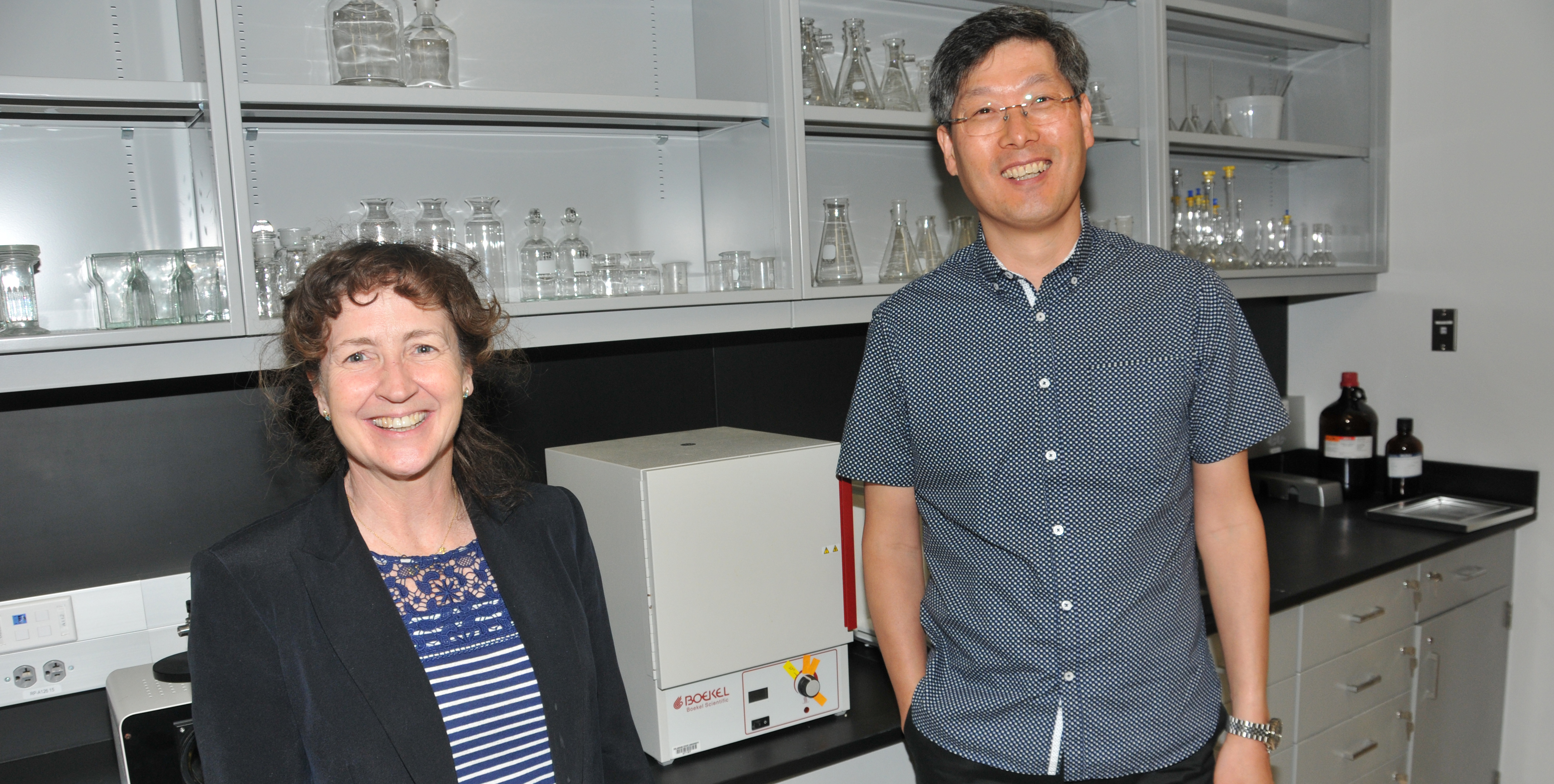
DSU Receives $1.85M Grant for Graduate Biology Program
DSU’s graduate biological sciences program recently received some financial support as the institution has been awarded a five-year, $1.85 million research education RISE grant from the National Institute of General Medical Sciences (which is under the National Institutes of Health).
The grant – designed to support a graduate training program to increase diversity in biomedical science – was successfully obtained by co-principal investigators Dr. Melissa Harrington, professor of biological sciences, and Dr. Hwan Kim, assistant professor of biological sciences.
“RISE – Research Initiative for Scientific Enhancement – annually provides stipend and tuition support for master’s and Ph.D. students in the Department of Biological Sciences throughout the five-year period,” said Dr. Harrington, who is also director of the Delaware Center for Neuroscience Research and the interim associate vice president of the Delaware Institute for Science and Technology.
According to the NIH, RISE is a developmental program that seeks to increase the number of students underrepresented in the biomedical sciences that complete Ph.D. degrees in these fields. The program provides grants to institutions with a commitment and history of developing students from populations underrepresented in biomedical sciences as defined by the National Science Foundation.
Dr. Harrington noted that the grant money will also be used to develop more courses to benefit other graduate students in the biological sciences and neuroscience disciplines. “We will add a thesis dissertation writing course to help students get over that last hurdle,” she said. ” We also plan to add a quantitative reasoning class to help them brush up on their mathematical skills and help their career development.”
She said the professional development course will also be expanded to provide exposure to a broader range of careers in research.

